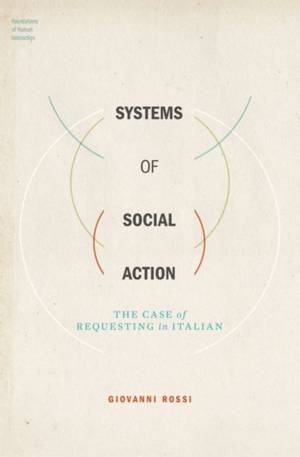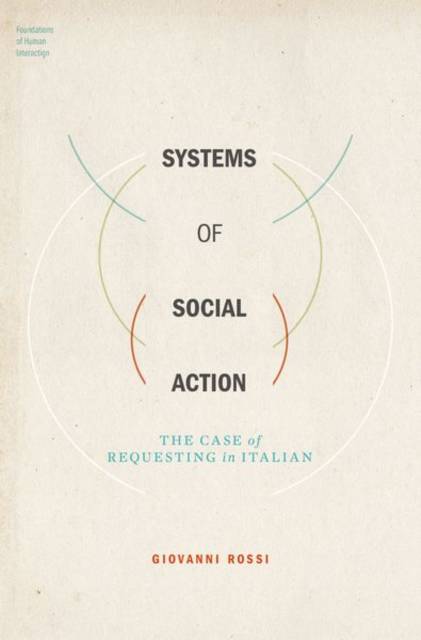
- Afhalen na 1 uur in een winkel met voorraad
- Gratis thuislevering in België vanaf € 30
- Ruim aanbod met 7 miljoen producten
- Afhalen na 1 uur in een winkel met voorraad
- Gratis thuislevering in België vanaf € 30
- Ruim aanbod met 7 miljoen producten
Zoeken
Omschrijving
In Systems of Social Action, author Giovanni Rossi argues that everyday cooperation relies on a system of social action, where the communicative tools that a culture provides to get others to do things are organized into a coherent array of interdependent practices. These practices range from directives like "Bring me a knife!" to questions like "Can you take over for me?" to nonverbal cues like pointing to or reaching out for an object. Rossi demonstrates that the use of request practices in informal settings is not determined by sociodemographic characteristics of the individuals involved such as age or gender, nor by the structural distance or power dynamics associated with those characteristics. Instead, the crafting of everyday requests is sensitive to the dynamic, situational needs of social interaction: distinguishing between individual and shared goals, seeking assistance in the face of resistance, navigating prerequisites for object exchange, and orchestrating collective agency. Based on an extensive study of real-life interactions among speakers of Italian, Rossi shows that requesting is more than just asking: it is a nuanced form of social influence that shapes and maintains relationships. These analyses drive his intervention in broader theories of social action. The case of requesting in Italian forms the empirical basis for a deeper understanding of systems of social action practices.
Specificaties
Betrokkenen
- Auteur(s):
- Uitgeverij:
Inhoud
- Aantal bladzijden:
- 288
- Taal:
- Engels
- Reeks:
Eigenschappen
- Productcode (EAN):
- 9780190690731
- Verschijningsdatum:
- 24/07/2025
- Uitvoering:
- Hardcover
- Formaat:
- Genaaid
- Afmetingen:
- 166 mm x 238 mm
- Gewicht:
- 566 g

Alleen bij Standaard Boekhandel
+ 319 punten op je klantenkaart van Standaard Boekhandel
Beoordelingen
We publiceren alleen reviews die voldoen aan de voorwaarden voor reviews. Bekijk onze voorwaarden voor reviews.







